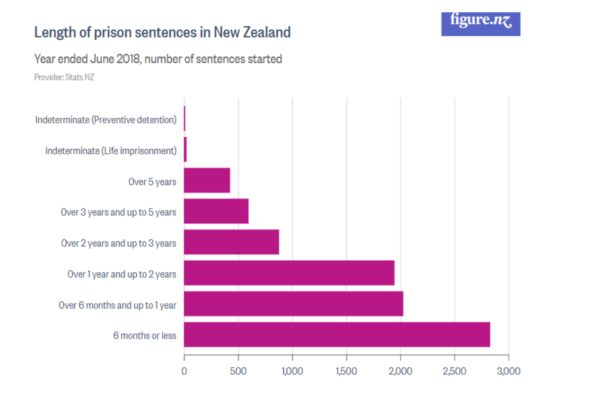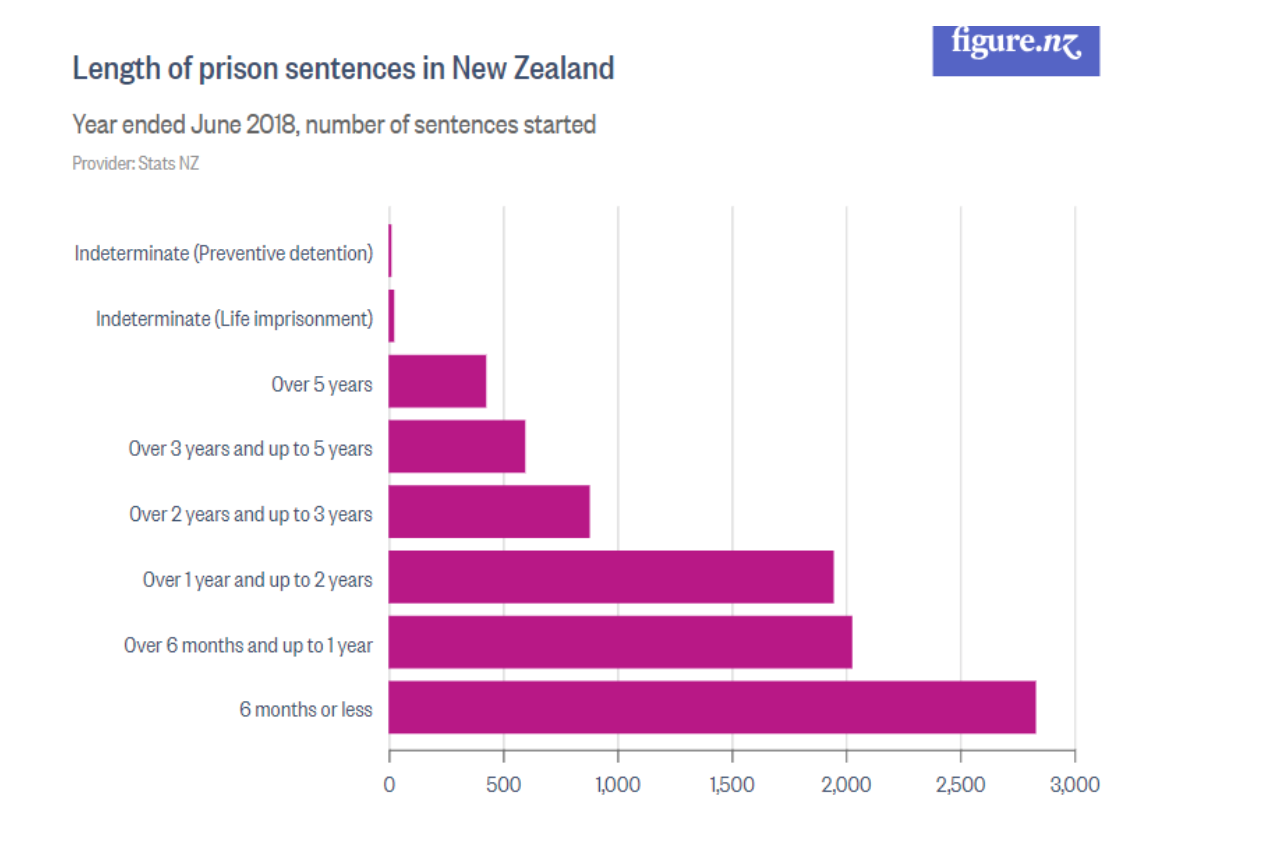The media pronounced August’s Justice Summit as nothing more than a talkfest. Even our ringmaster here, young Bomber B, thought that it was just about as useful as sitting round a campfire singing Kumbaya. I disagree with both appraisals. The summit lit a fire for prison reform in New Zealand that will lead to real change. You read it first here.
Andrew Little, basically Minister of the Year in 2018, has already seen the benefits of a mood for change. According to the MOJ forecasts, over 11,000 people should now be in prison (and we would, under National, have a new $1 billion prison to house them all in). instead, without anything at all except a mood for change and Ministerial determination, prison numbers have fallen to just on 10,000 as at September 2018.
That’s right, this is before the working group reports, before new policies are put in place, before real change has occurred. It is extraordinary. There is a resounding belief amongst most New Zealanders that prison numbers are driven by the deeds of bad people, and/ or the efficiency of police in prosecuting. This is not the case at all. It is policy and government expectation that drives prison numbers.
So I was really interested to see a proposal by the Tory Government in England to get rid of all prison sentences of six months and under. That is, anyone who is now sentenced for such a short period would be given a community-based sentence. If such a proposal were implemented here, then it would decrease overall prison numbers by about a third immediately, from 10,000 to around 7,500, as this graph shows.

Going to prison for short periods is highly disruptive to people’s lives. For a start, they often lose their job, their home and their family. They lose self-esteem and their record sticks around far longer than the actual sentence. Stigma and discrimination shadow the lives of both prisoners and their families. Recidivism rates for short term offenders are very high, and many fall into the revolving door of crime, imprisonment and further crime. They get virtually no help.
Removing the category of short-term prisoners completely in Aotearoa would be a win-win situation, along (as I always say) with reducing the numbers on remand and letting more out on parole. There are lots of options for community-based sentences (a few are welcome to start with my garden!). Any reduction in prison numbers will free up funds for all kinds of innovative options.
With such a high proportion of all prisoners being sentenced to two years or less in prison, there is space to look at alternatives. Most countries have different types of prisons, but New Zealand has only one. Options such as open prisons for minimum security prisoners, employment training prisons, drug and alcohol therapeutic prisons and so on are possible.
One thing is for sure. The penal harm era, where shoving people in prisons and then punishing them further is about to end. Even in the USA, prison reform is on the legislative agenda. The UK overall is well down the path to recognising that prison contribute to family harm and rarely resolve it.
Minister Little’s advisory group is made up of a great mix of experienced and innovative people. I can’t wait for them to report a process for our future prison systems that turns its back on the cumulative misery of the past thirty years and invents a modern penal system for the future.
Dr Liz Gordon began her working life as a university lecturer at Massey and the Canterbury universities. She spent six years as an Alliance MP, before starting her own research company, Pukeko Research. Her work is in the fields of justice, law, education and sociology (poverty and inequality). She is the president of Pillars, a charity that works for the children of prisoners, a prison volunteer, and is on the board of several other organisations. Her mission is to see New Zealand freed from the shackles of neo-liberalism before she dies (hopefully well before!).






LIZ;
“Even in the USA, prison reform is on the legislative agenda.”
It is my understanding that the Justice Reform Bill has been passed and the
‘Three Strikes’ has been laid to rest.
Another Trump Administration success that never seems to be highlighted.
Cheers.
From what I know after reading this article: https://www.nytimes.com/2018/12/18/us/politics/senate-criminal-justice-bill.html
Mandatory minimums for crack possession were already reduced in a previous law. What this one does is allow prior convictions to have their sentences reduced to be in line with the new sentencing guidelines. Which means there’s a good chance of a bunch of people getting out of jail with “time served” once it’s signed and the courts begin working through the backlog.
Given the current political climate in the U.S. It’s surprising this got through. That just leaves a scrapping of minimum sentencing for any progressive wanting to take up the criminal reform challenge.
One day we’ll wake up, unshackle the chains that bind and leave the convict slave ship.
http://humansarefree.com/2018/05/the-crown-of-england-is-owned-and.html
As the link states “warfare is commerce and commerce is warfare”. The slaves are more valuable to their owners in chains. Penal systems are money makers for the slave owners who wage perpetual war against the slaves by making available the vicious circle then dishing out punishment to the slaves for using that very same circle.
As the walls of the matrix crumble it is evident that the Devil is in the detail.
The answer for me is obvious. Give New Zealanders back their land, their jobs, get rid of Tavistock control of the education system, allow people to chose and the rest follows. Human beings are decent people. The slave owners are not. It is the latter who should be jailed.
It’s not beyond belief that people are driven to break the “law”. So many ways and means now with microwave radiation.
https://www.youtube.com/watch?v=vxrBLO1rAMM
Comments are closed.